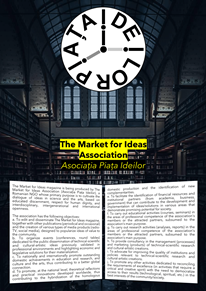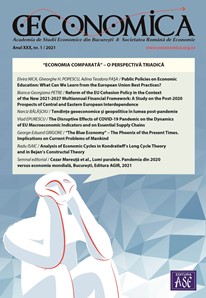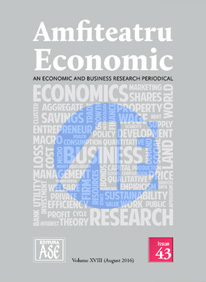
The Keys to the American Economy Are Changing Hands
A change in leadership is imminent for one of the most important institutions for the American economy. Janet Yellen, the first woman to chair the Federal Reserve, will step down at the end of her four-year tenure at the helm of the establishment, after becoming the first chair in recent years not to be nominated for a second term.
President Donald Trump’s nominee to replace Yellen is Jerome Powell, a Republican who joined the Board of Governors of the Federal Reserve System in May 2012. Likely to be supported in the Senate by Democrats and Republicans alike, Powell appeals to both groups. On the one hand, he demonstrated similar policy leanings to those of Yellen from and interest-rate hike standpoint and the two reportedly shared a good working relationship. As a result, Powell is expected to carry Yellen’s policy legacy. On the other, having a background in private equity, Powell is less keen on financial sector regulation, a stance which certainly weighed in his favor in the eyes of President Trump, who argued for the repeal of Dodd-Frank during his campaign. A worrying facet of Powell’s perspective is his belief that Wall Street’s main actors in the banking sector should no longer be viewed as “too big to fail”, a statement he made during his testimony in front of the Senate Banking Committee. Unlike the more cautious Yellen, Powell declared during the same testimony that "We will continue to consider appropriate ways to ease regulatory burdens while preserving core reforms".
On this note, Sandeep Dahiya, a finance professor at Georgetown's McDonough School of Business cited by Business Insider stated that while "All big banks passed the Fed stress test in 2017, and all big banks are required to submit their 'living wills' that outline what should happen to them in case they fail," the eight largest American banks are not 100% compliant. Moreover, there is skepticism regarding the usefulness of living wills, especially considering that maintaining a level of confidence is of the utmost importance in moments of crisis, to prevent bank runs and panic.
What sets Jerome Powell aside from his predecessors is his background. The nominee is the first since 1987 to lack a Ph.D in economics. Furthermore, according to the Federal Reserve’s website, “He received an A.B. in politics from Princeton University in 1975 and earned a law degree from Georgetown University in 1979. Prior to joining the Administration, he worked as a lawyer and investment banker in New York City”, which could translate into an insufficient understanding of more technical aspects of the role. He is, however, regarded as knowledgeable among his peers.
Nevertheless, Powell has a reassuring understanding of markets and in addition to the prospect that he will not sway from his predecessor’s policies, according to sources cited by Bloomberg, the independence of the Fed is in no immediate danger, with Powell expected to not be strong-armed into submission to political interests.
The United States could be ambushed by a new economic downturn, in which case the Fed will have to leverage unorthodox means of recovery such as quantitative easing. Former Treasury Secretary Larry Summers noted at a Brookings Institution conference in early January that because interest rates are still low, the Fed may not have enough maneuvering space to jumpstart the economy. He also pointed out that, historically, the necessary decrease in rates was 5%, a margin the Fed does not have at its disposal, while expressing doubt that quantitative easing could be as effective in the future. The Republican Tax Bill weakened a potential fiscal response to economic distress – Nobel laureate George A. Akerlof and Robert J. Shiller argue in their book Animal Spirits that fiscal policy plays a more significant role in the revival of an economy than monetary policy, which means that Powell would have to resort to extraordinary measures.
Such an alternative may be temporary price-level targeting. Ben Bernanke is one of its supporters, noting on his blog that its effects would be superior to those obtained through an increase of the inflation target or a permanent (ordinary) price-level targeting. He explains: “a temporary price-level target, invoked only during ZLB (zero-lower bound) episodes, appears to have many of the benefits of ordinary price-level targeting. It would preserve the commitment to price stability. Importantly, it would create the expectation among market participants that ZLB episodes will lead to “lower-for-longer” or “make-up” rate policies, which would ease financial conditions and help mitigate the frequency and severity of such episodes. Unlike an ordinary price-level target, however, the temporary variant could be folded into existing inflation-targeting regimes in a straightforward way, minimizing the need to change longstanding policy frameworks and communications practices. In particular, central bank communication could remain focused on inflation goals. Finally, in contrast to an ordinary price-level target, the proposed approach would allow policymakers to continue to “look through” temporary inflation shocks that occur when rates are away from the ZLB.”








